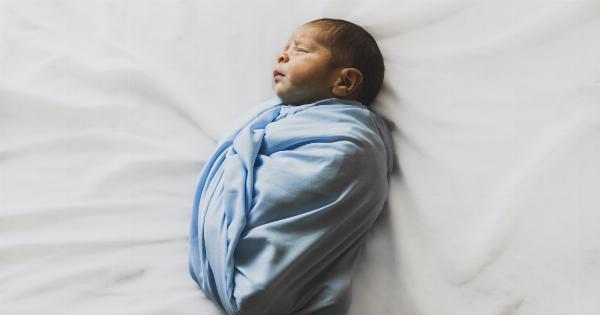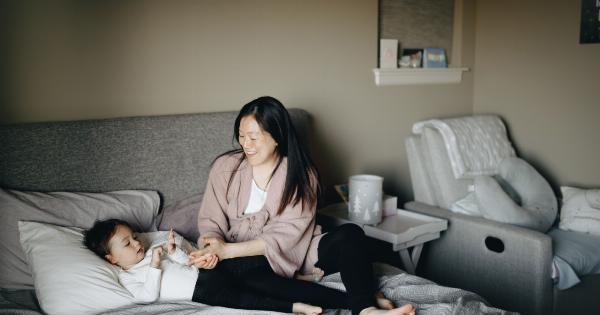Getting enough sleep is vital for our overall health and well-being. It helps to rejuvenate our body and mind, allowing us to function optimally throughout the day. However, the amount of sleep we require varies depending on our age.
In this article, we will explore the different age groups and the amount of sleep they need for optimal functioning.
The Sleep Needs of Newborns and Infants
Newborns and infants require the most sleep as their bodies and brains are rapidly developing. During the first few months of life, babies typically sleep for about 16-20 hours per day.
However, their sleep is not consolidated into long periods but rather occurs in shorter bursts.
As infants reach three to four months of age, they begin to establish more regular sleep patterns. They still need around 12-16 hours of sleep per day, including daytime naps.
This sleep helps to support their growth and development, as well as their cognitive and emotional well-being.
The Sleep Needs of Toddlers and Preschoolers
Toddlers and preschoolers also require a significant amount of sleep to support their active lifestyles and rapid development. Generally, toddlers need around 11-14 hours of sleep per day, including daytime naps.
By the time children reach preschool age, their sleep needs decrease slightly to about 10-13 hours per day.
Establishing a consistent bedtime routine and providing a calm sleep environment can greatly help toddlers and preschoolers achieve the necessary amount of sleep.
An adequate sleep duration during this period is crucial for their physical growth, cognitive functioning, and emotional regulation.
The Sleep Needs of School-Age Children
As children enter school age, their sleep needs remain substantial, although they gradually decrease. School-age children typically require around 9-11 hours of sleep per night.
With increasing academic and extracurricular activities, it becomes even more important for parents to prioritize their sleep to ensure optimal performance both academically and socially.
However, many school-age children do not get enough sleep due to various factors, such as electronic device use, excessive homework, and irregular bedtime routines.
It is crucial for parents to establish consistent sleep schedules and promote healthy sleep habits to support their children’s overall well-being.
The Sleep Needs of Teenagers
During adolescence, significant changes occur in a teenager’s body and brain, including a shift in their sleeping patterns.
Teenagers generally experience a delay in their internal biological clock, making it difficult for them to fall asleep early in the evening.
Despite this delay, teenagers still require around 8-10 hours of sleep per night. However, due to early school start times and extracurricular commitments, many teenagers do not meet their sleep needs.
This chronic sleep deprivation can have detrimental effects on their academic performance, mood regulation, and overall health.
The Sleep Needs of Adults
Once individuals reach adulthood, their sleep needs become more consistent and generally range between 7-9 hours per night.
However, the optimal sleep duration varies between individuals, and some adults may require more or less sleep to function optimally.
Factors such as work schedules, family responsibilities, and lifestyle choices can influence the amount and quality of sleep adults receive.
Nevertheless, it remains important for adults to prioritize sleep and establish healthy sleep habits to support their physical health, cognitive functioning, and overall well-being.
The Sleep Needs of Older Adults
As individuals enter their golden years, their sleep patterns tend to change. Older adults may experience a decrease in the amount of deep sleep (slow-wave sleep) they receive, as well as an increase in nighttime awakenings.
These changes can result in older adults requiring slightly less sleep than younger adults.
Generally, older adults need between 7-8 hours of sleep per night. However, it is important to note that sleep needs can vary among this age group.
Some older adults may function perfectly fine with less sleep, while others may still require a full 8 hours. Paying attention to individual sleep cues and ensuring the necessary amount of rest is obtained is crucial for optimal functioning in older adults.
Factors Affecting Sleep Needs
While the aforementioned sleep needs are general guidelines for different age groups, it is important to consider that individual variations and other factors can influence one’s sleep requirements.
Some factors that can affect sleep needs include:.
- Genetics: Some individuals may naturally require more or less sleep due to their genetic makeup.
- Health conditions: Certain medical conditions and mental health disorders can affect how much sleep a person needs.
- Lifestyle factors: Factors such as physical activity levels, diet, and stress levels can influence the amount of sleep a person needs.
- Medication and substance use: Certain medications and substances, such as caffeine or alcohol, can disrupt sleep patterns and affect sleep needs.
Conclusion
Sleep is essential for our overall health and well-being at every stage of life. While the amount of sleep needed varies based on age, it is crucial to prioritize sleep and establish healthy sleep habits for optimal functioning.
From the early stages of life to older adulthood, obtaining the necessary amount of sleep contributes to physical growth, cognitive development, mood regulation, and overall quality of life.



























